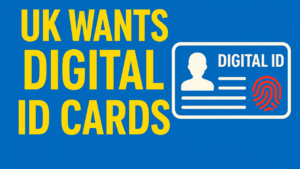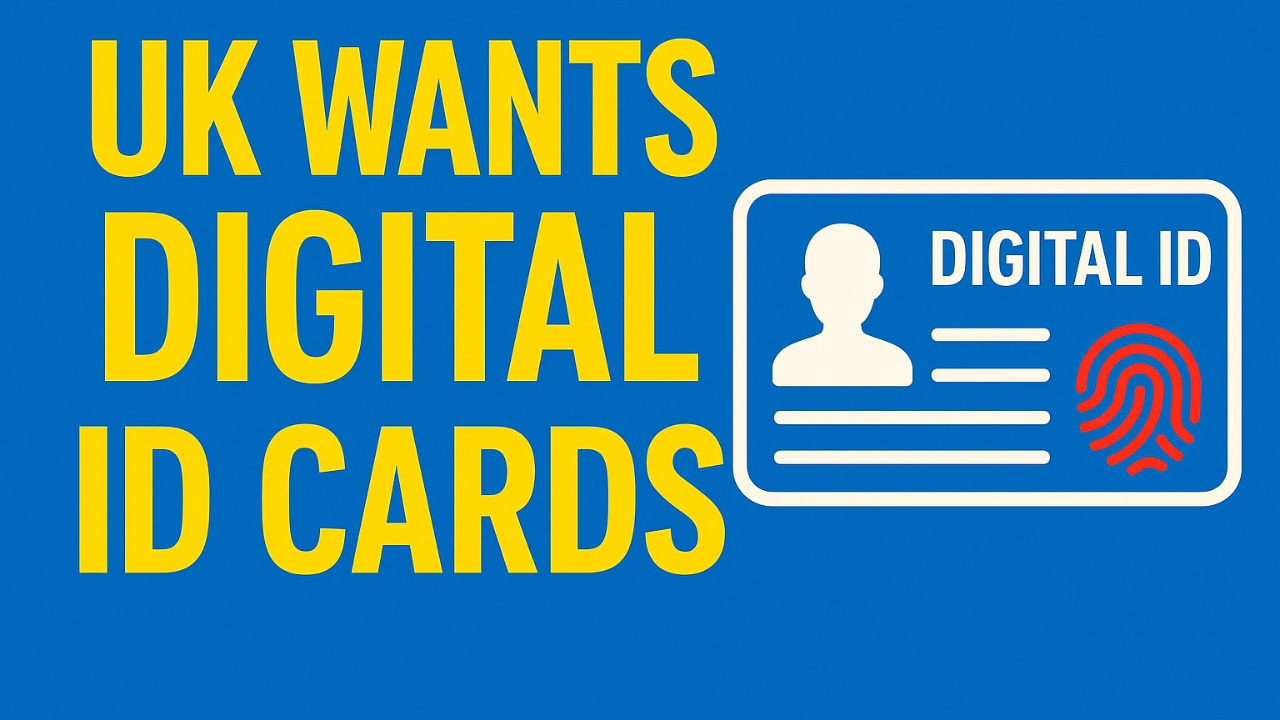
The title of my video and blog post today is, UK wants Digital ID cards! There is renewed talk in the UK about introducing digital ID cards—an idea many were told would never happen. For years, raising concerns about digital ID was dismissed as a “conspiracy,” yet official voices are now exploring it as a tool to “tackle illegal immigration” and manage access to services. In this article (based on my video), I look at what a digital ID could mean for ordinary people, and I share a Christian perspective rooted in Scripture.
What’s being proposed—and why it matters
The current conversation frames digital ID as a practical solution to problems such as illegal immigration, benefit fraud, and activity in the black economy. On the surface, it sounds efficient. But step back and ask the larger question: what happens when every purchase, journey, login, and post can be tied to one central identifier?
- Centralised tracking: Purchases, travel, online activity, and public-service access could all be linked to one profile.
- Conditional access: In a centralised system, access to banking, transport, or services might be restricted or revoked.
- Digital exclusion: Pensioners and the less tech-confident could be locked out if they cannot navigate the system.
- Mission creep: Systems built for one purpose often expand; today’s “verification” can become tomorrow’s “control.”
“A digital prison?”
Commentators warn that a mandatory digital ID could become a gatekeeper for everyday life. Imagine being unable to board a bus, access your bank, or post online without the right digital approval. With AI accelerating data analysis, such controls become easier to implement at scale. Whether or not a full social-credit model is intended, the capability to approximate one would be in place.
Digital ID could end up being a digital prison, that’s why Tony Blair has tried for it for 20 yrs.
Say something against the ‘agreed’ narrative online, suddenly you can’t use a train or a bus.
Owe a speeding fine etc, you can’t access benefits or accounts.THIS IS ABOUT CONTROL
— Adam Brooks AKA EssexPR 🇬🇧 (@EssexPR) September 3, 2025
A Christian perspective: freedom in Christ
As Christians, we measure earthly systems by a higher standard. The Bible speaks about liberty, allegiance to God, and the temporary nature of worldly citizenship.
2 Corinthians 3:17 (NKJV)
“Now the Lord is the Spirit; and where the Spirit of the Lord is, there is liberty.”
Galatians 5:1 (NKJV)
“Stand fast therefore in the liberty by which Christ has made us free, and do not be entangled again with a yoke of bondage.”
Acts 5:29 (NKJV)
“But Peter and the other apostles answered and said: ‘We ought to obey God rather than men.’”
These verses remind us that true liberty is spiritual before it is political. We should participate wisely in civic debates, but our deepest freedom does not come from governments; it comes from Christ.
Prophetic warnings and the “mark” system
Revelation 13:16–17 (NKJV)
“He causes all, both small and great, rich and poor, free and slave, to receive a mark on their right hand or on their foreheads, and that no one may buy or sell except one who has the mark or the name of the beast, or the number of his name.”
Christians differ on the timeline and details, but many see in modern technology the potential infrastructure for a buy-sell control system. Whether or not this is the final fulfilment, the trend line is clear: centralised systems can be used to control conscience. That is reason enough to be sober, prayerful, and prepared.
Practical implications
- Privacy: Consider how much data you hand to central authorities and private platforms.
- Redundancy: Keep offline copies of key documents and maintain alternative ways to transact where possible.
- Advocacy: Engage your MP courteously, support proportionate safeguards, and ask for opt-outs and clear limits.
- Care for others: Help pensioners and vulnerable neighbours navigate technology—and speak up if a system would exclude them.
- Spiritual readiness: Stay grounded in Scripture, prayer, and fellowship. Freedom in Christ steadies us in uncertain times.
Our true citizenship
Philippians 3:20 (NKJV)
“For our citizenship is in heaven, from which we also eagerly wait for the Savior, the Lord Jesus Christ.”
Whatever happens in policy, Christians live with hope. We are called to occupy faithfully until Christ returns, doing good, sharing the gospel, and caring for people.
A simple prayer
If you would like to know Jesus personally, you can pray this from your heart:
“Dear Lord Jesus, I acknowledge You as Lord and Saviour of my life. I repent of all my sins and ask You today to take complete control of every aspect of my life. Amen.”
Join the conversation
I’d love to hear your thoughts—please share them in the comments. If this helped you, consider sharing it with a friend.
Related posts on this site
